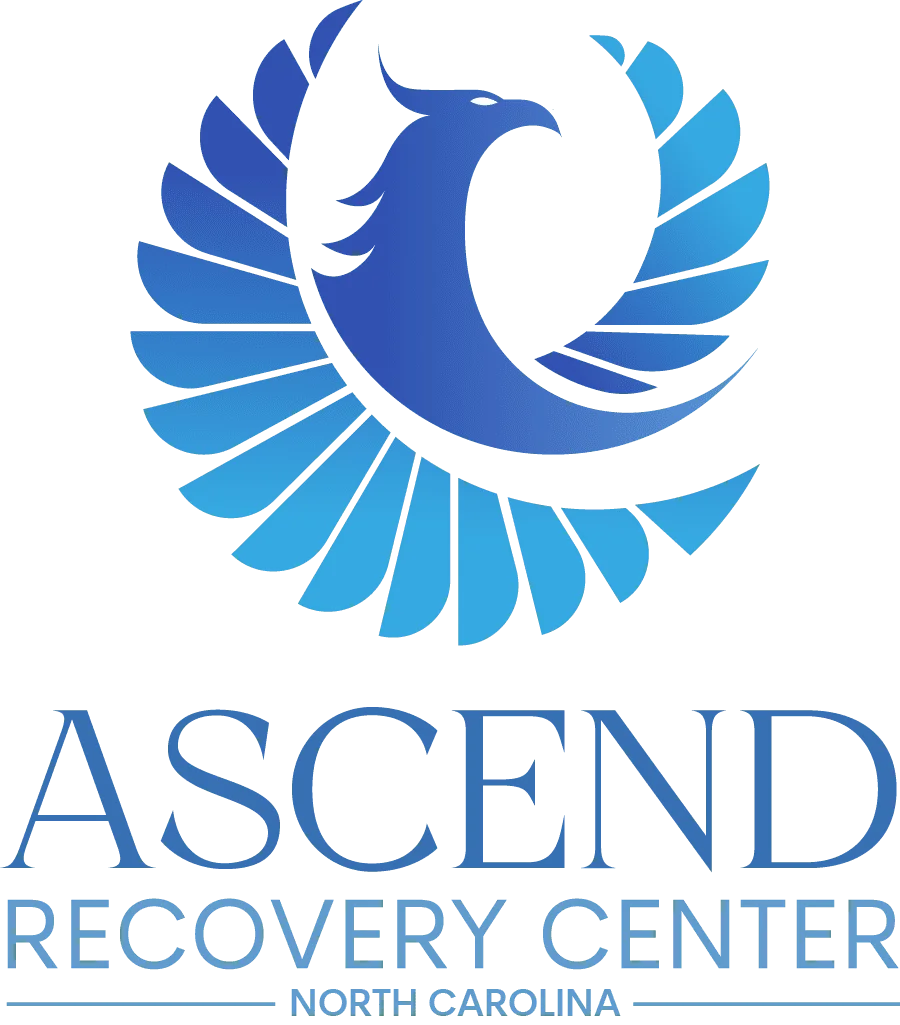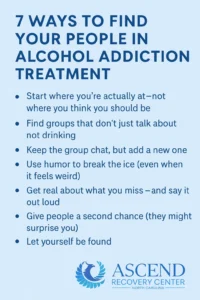Let’s be real—quitting alcohol can feel like quitting your social life.
Especially if you’re in your 20s and all your friends are still on the bar crawl circuit. You’re trying to change, they’re posting shots (and taking them). You’re going to therapy, they’re texting, “Just come out for one drink.”
If you’re feeling like the “weird one,” you’re not alone. That in-between space—where you’re no longer drinking but haven’t found your sober people yet—is hard. But you can find your people. And when you do? It changes everything.
👉 Want support that actually fits where you’re at? Learn more about alcohol addiction treatment in Charlotte, North Carolina.
1. Start Where You’re Actually At—Not Where You Think You Should Be
There’s no “right” way to look in recovery. You don’t need perfect posture, a gratitude journal, or a therapist-approved backstory to belong in treatment. If you’re a 22-year-old who drinks too much and cried during a Taco Bell ad last week, guess what? You qualify.
In treatment, vulnerability is your superpower. You don’t need to be fixed to be welcomed. Come as you are—awkward, uncertain, still grieving party culture. The people who show up authentically are the ones who connect the fastest. Don’t fake it. The real ones find each other.
2. Find Groups That Don’t Just Talk About Not Drinking
Sitting in a group therapy circle is great—but let’s be honest, sometimes it’s a little much. Especially if you’re newer to treatment or just not in the mood to “open up” today.
That’s why it helps to mix in activity-based or skills-focused groups:
- Art therapy where nobody cares how you draw
- Relapse prevention groups that feel like adulting workshops
- Sober hikes or fitness classes where conversation happens side-by-side, not face-to-face
These spaces let you be in community without having to always talk about community. You’ll bond over doing things—not just discussing feelings.
3. Keep the Group Chat, But Add a New One
You don’t have to burn your past to build your future. It’s okay to still love your drinking friends while realizing they can’t fully support your sober life.
Create space for both:
- Mute the old chat when it’s all “shots tonight?” and you’re trying not to spiral
- Add a new text thread with people you’ve met in treatment or online sober spaces
- Normalize sending “I’m craving hard today” or “Went to the gym instead of the bar—pls clap” messages
Sober friendships grow in the in-between moments. Let yourself be known, even imperfectly.
4. Use Humor to Break the Ice (Even When It Feels Weird)
Humor is one of the best tools you have in early sobriety. You don’t have to make recovery sacred 24/7. It’s okay to laugh at how dramatic your “before” story sounds now. Or to admit you cried at a hard lemonade ad. Again.
You might say something like:
“Anyone else feel like an undercover agent at brunch now?”
That one joke can unlock a full conversation. Vulnerability opens the door—but humor invites people to walk through it. And sometimes, laughing is the healing.
5. Get Real About What You Miss—and Say It Out Loud
It’s totally normal to miss alcohol—even when you know it wrecked you. What’s not helpful? Pretending you don’t.
You might miss:
- The confidence you felt after two drinks
- The feeling of being “in” with your friends
- Having something to look forward to on weekends
Saying this out loud in group isn’t weakness—it’s truth. And truth is magnetic in treatment. Someone else will hear you and say, “Me too.” That’s the moment connection begins.
At Ascend, our alcohol addiction treatment in Charlotte is designed to make space for this kind of honesty. No sugarcoating. No shame.
6. Give People a Second Chance (They Might Surprise You)
Sometimes the people who eventually become your ride-or-die sober friends don’t make the best first impression. Maybe they’re quiet. Maybe they seem too intense. Maybe they remind you a little too much of yourself.
Give it time. Early recovery is weird for everyone. You’re not here to make surface-level friends—you’re building lifelines. The people who seem least like you might end up being the ones who call you out, sit with you in the dark, or make you laugh when nothing else helps.
Stay open. Friendship doesn’t always start with fireworks. Sometimes it starts with silence, shared coffee, and sticking around.
7. Let Yourself Be Found
You don’t need to be the leader of the pack. You just need to show up.
That means:
- Attending your outpatient group even when you’re tired
- Saying yes when someone invites you to get food after
- Responding to the text even when your brain says, “Ghost them—it’s safer”
Recovery doesn’t hand you soulmates. It gives you opportunities. The people are out there. But they can’t find you if you keep disappearing.
💬 Peer Perspective
“I thought I was going to be alone forever. But once I admitted I felt out of place, three people came up to me after group and said the same thing. That was the beginning.”
— Outpatient Client, 2023
FAQ: Finding Connection in Early Sobriety
Is it normal to feel lonely during alcohol addiction treatment?
Yes. Early sobriety often feels isolating, especially when your old friends still drink. It takes time to rebuild a social circle that aligns with your new life. Loneliness doesn’t mean you’re doing recovery wrong—it means you’re letting go of what no longer fits.
How do I know if someone in treatment could be a good friend?
Look for people who show up consistently, who are honest (not perfect), and who make you feel seen. You don’t need 10 best friends—one or two solid connections can make all the difference.
What if I don’t connect with anyone right away?
That’s okay. Keep showing up. Connection takes time, especially in a setting where everyone’s navigating their own pain. Be patient with yourself and others. Stay open, and keep trying different groups or activities until something clicks.
Is it okay to keep friends who still drink?
Yes—but with boundaries. Some friends may support your sobriety, while others might not understand. Pay attention to how you feel after spending time with them. If it threatens your recovery, it’s okay to take space—even temporarily.
Can alcohol addiction treatment actually help me find community?
Absolutely. The right treatment program doesn’t just help you stop drinking—it helps you start connecting. At Ascend, we believe that recovery isn’t meant to be done alone. Our clinicians are here to support you every step of the way—awkward moments included.
📞 You don’t have to figure this out solo.
Call (844) 628-9997 or visit our Charlotte alcohol addiction treatment page to learn how Ascend North Carolina helps young people find real support—and real community—in recovery.



